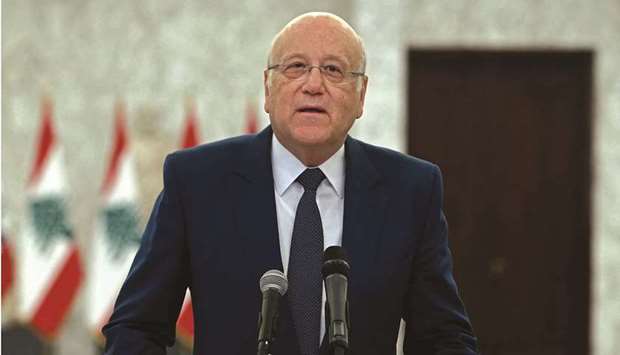Lebanon’s new prime minister-designate Najib Mikati yesterday held consultations with political parties that he said “unanimously” agreed on the need to put together a government quickly to rescue the crisis-hit country.
But he faces an uphill battle after nearly a year of extreme drift, an economic crisis described by the World Bank as one of the world’s worst since the 1850s and continued squabbling among political players. The United States issued a call yesterday for Mikati “to quickly form a government that’s empowered and a government that’s also committed to implementing critical reforms”. Mikati, a billionaire who has already twice served as prime minister, took on the task on Monday, days after fellow veteran politician Saad Hariri threw in the towel.
The last government resigned amid public outrage over a deadly explosion of hundreds of tonnes of poorly stored fertiliser at Beirut port last August.
The institutional vacuum is holding up a potential financial rescue plan for the country, which defaulted on its debt last year.
Yesterday, Mikati met with top political parties, including the powerful Hezbollah movement and the Free Patriotic Movement founded by President Michel Aoun. “There was unanimous agreement from all blocs and lawmakers on the need to speed up the process of cabinet formation,” Mikati said after consultations ended.
The meetings are the customary official step that follows a new prime minister’s designation, but the high-stakes horse-trading has yet to even begin.
Following a meeting with Mikati, Hezbollah lawmaker Mohamed Raad said his party was ready to “co-operate seriously” with the new PM-designate.
FPM chief Gebran Bassil, accused by critics of repeatedly obstructing previous efforts to form a new government, said his party would stand aside this time.

Lebanon’s new prime minister-designate Najib Mikati.
